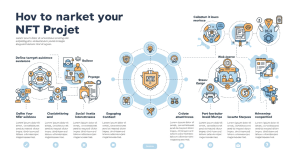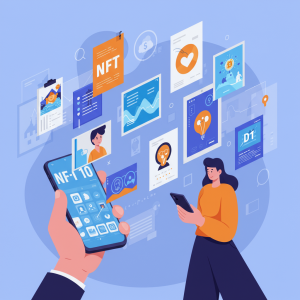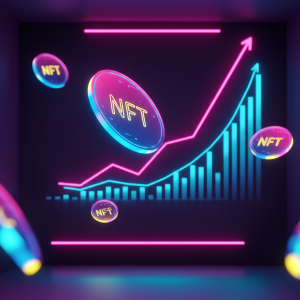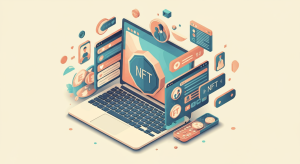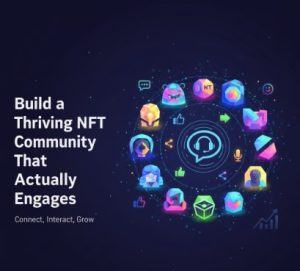What are NFT Marketplaces? A Guide for Beginners
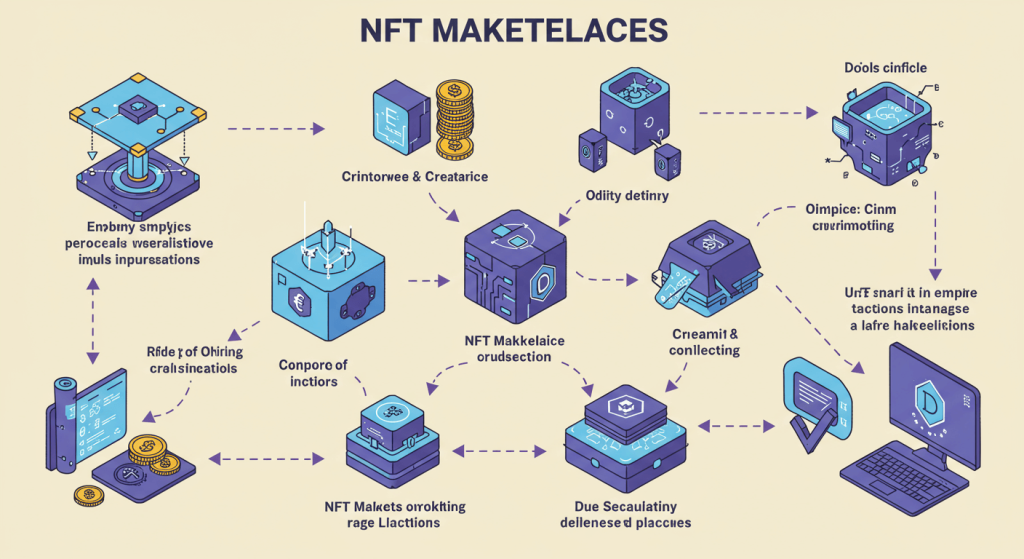
Non-fungible tokens, or NFTs, have exploded in popularity, transforming digital art, collectibles, and even music. But where do you actually buy and sell these unique digital assets? The answer is an NFT marketplace. These platforms are the digital equivalent of an auction house or an art gallery, providing a space for creators and collectors to connect.
If you’re new to the world of crypto and NFTs, navigating these marketplaces can seem intimidating. This guide will break down exactly what an NFT marketplace is, how it works, and introduce you to some of the most popular platforms available. By the end, you’ll have the confidence to start exploring, buying, and even selling your own digital treasures.
What is an NFT Marketplace?
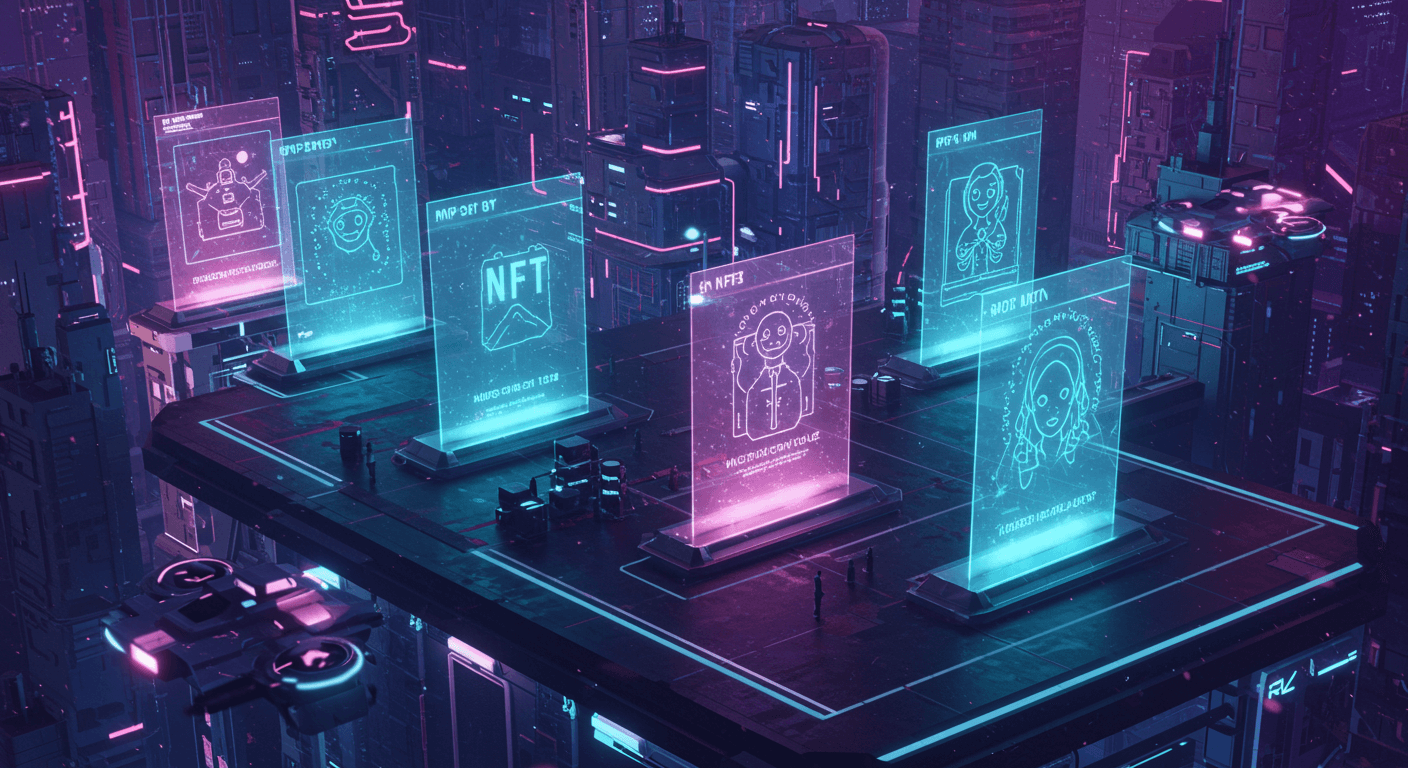
An NFT marketplace is a digital platform designed for storing, displaying, trading, and in some cases, creating (or “minting”) NFTs. Think of it like eBay or Amazon, but exclusively for non-fungible tokens. These marketplaces are built on blockchain technology, which is the same decentralized ledger system that powers cryptocurrencies like Bitcoin and Ethereum.
Because they operate on a blockchain, all transactions are transparent, secure, and publicly verifiable. This ensures that every NFT’s ownership history is clear and cannot be altered, which is crucial for establishing authenticity and value. When you buy an NFT, the marketplace facilitates the transfer of ownership from the seller’s crypto wallet to yours, recording the transaction permanently on the blockchain.
How Do NFT Marketplaces Work?
Getting started on an NFT marketplace involves a few key steps. While each platform has its own unique interface, the general process is quite similar across the board.
Setting Up a Crypto Wallet
Before you can do anything on an NFT marketplace, you need a digital wallet that can hold both cryptocurrency and NFTs. This wallet acts as your personal account on the blockchain, allowing you to sign transactions and manage your assets. Popular choices include MetaMask, Coinbase Wallet, and Trust Wallet. Setting one up is usually a straightforward process of downloading an app or browser extension and following the setup instructions.
Funding Your Wallet
Next, you’ll need to buy the specific cryptocurrency required by the marketplace you plan to use. Most of the largest NFT marketplaces are built on the Ethereum blockchain, so you’ll likely need to purchase Ether (ETH). You can buy cryptocurrency on exchanges like Coinbase, Binance, or Kraken and then transfer it to your personal crypto wallet.
Connecting to a Marketplace
Once your wallet is funded, you can visit the NFT marketplace of your choice. You’ll find an option to “Connect Wallet,” which links your digital wallet to the platform. This allows the marketplace to view the NFTs and crypto you hold, enabling you to make purchases or list items for sale.
Buying and Selling NFTs
With your wallet connected, you can browse listings just like you would on any e-commerce site. NFTs are typically sold in two ways:
- Fixed Price: The seller lists the NFT for a set price, and you can buy it instantly.
- Auction: The seller sets a minimum price and a time frame for the auction. Bidders place offers, and the highest bidder at the end of the auction wins the NFT.
When you purchase an NFT, the marketplace will prompt your wallet to confirm the transaction. This will include the price of the NFT plus a “gas fee,” which is a transaction fee paid to the blockchain network to process the exchange. Once confirmed, the NFT is transferred to your wallet, and the cryptocurrency is sent to the seller.
Types of NFT Marketplaces
While all NFT marketplaces serve the same basic function, they can be categorized based on the types of NFTs they offer and their target audience.
Curated vs. Open Marketplaces
- Curated Marketplaces: These platforms are more selective and often require artists to apply and be approved before they can mint or list their NFTs. They tend to feature high-quality, exclusive digital art from established or vetted creators. Platforms like SuperRare and Nifty Gateway are examples of curated marketplaces.
- Open Marketplaces: These are accessible to anyone. Any user can connect their wallet and mint their own NFTs, leading to a vast and diverse range of content. OpenSea and Rarible are the most well-known open marketplaces, offering everything from digital art and music to domain names and virtual land.
Specialized Marketplaces
Some platforms focus on specific niches within the NFT ecosystem. For example:
- NBA Top Shot: A marketplace dedicated exclusively to officially licensed NBA highlight clips.
- Axie Infinity Marketplace: A platform for buying and selling characters and items for the popular blockchain game Axie Infinity.
- Sorare: A fantasy soccer game where users can collect and trade NFT player cards.
These specialized marketplaces cater to specific communities and interests, creating a more focused and engaging experience for fans and collectors.
Popular NFT Marketplaces to Explore
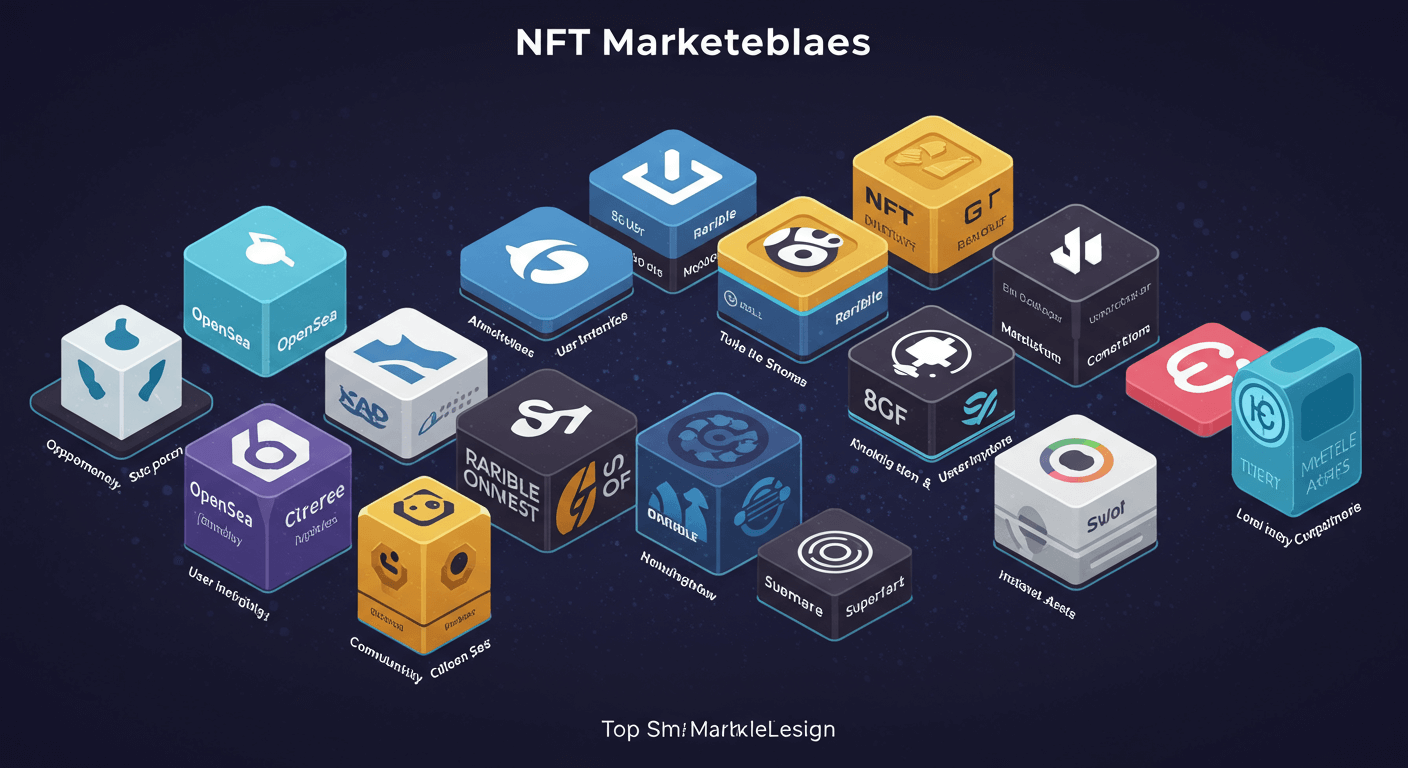
If you’re ready to start your journey, here are a few of the most popular and user-friendly platforms to check out.
1. OpenSea
Often called the “Amazon of NFTs,” OpenSea is the largest and most established open marketplace. It hosts a massive variety of digital assets on several blockchains, including Ethereum, Polygon, and Solana. Its open-door policy means you can find everything from high-profile art collections to emerging independent projects. Because it supports the Polygon network, users can often buy and sell with much lower gas fees.
2. Rarible
Rarible is another major open marketplace that allows anyone to create and sell NFTs. One of its unique features is its governance token, RARI. Users who actively buy or sell on the platform earn RARI, which gives them a say in the platform’s future development and decision-making. This community-centric approach has made it a popular choice for creators who want to be more involved in the ecosystem.
3. SuperRare
For those interested in high-end, single-edition digital art, SuperRare is a leading curated marketplace. The platform positions itself as a digital art gallery, focusing on quality over quantity. Every piece is unique (a “1 of 1”), and the rigorous artist selection process ensures a high standard of work, making it a go-to for serious art collectors.
4. Nifty Gateway
Nifty Gateway is another curated platform known for its exclusive “drops” from famous artists, musicians, and brands. They partner with creators like Beeple and Grimes to release limited-edition collections that often sell out in minutes. Nifty Gateway also simplifies the buying process by allowing users to purchase NFTs with a credit card, making it more accessible to those new to cryptocurrency.
Your Next Steps in the NFT World
NFT marketplaces are the essential gateways to the exciting and rapidly evolving world of digital ownership. They provide the infrastructure for a new kind of digital economy where creators can monetize their work directly and collectors can own a piece of internet history.
Whether you’re an artist looking to share your creations, a collector searching for the next big thing, or simply curious about the technology, exploring these platforms is the best way to learn. Start by setting up a crypto wallet, browse the collections on a user-friendly platform like OpenSea, and see where your curiosity takes you. The digital frontier is wide open, and NFT marketplaces are your map to exploring it.

